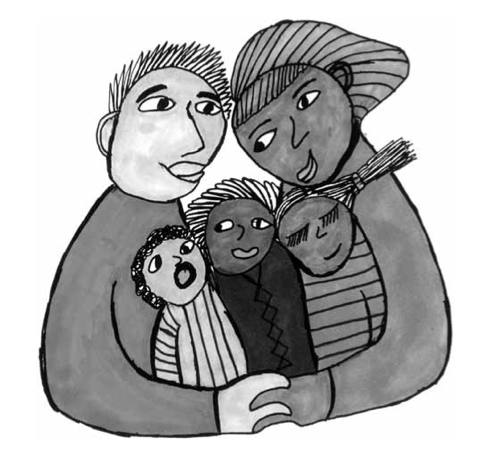
When I learned about a program called Visit Coaching, which is designed to help families have better quality visits, I decided to get trained to be a coach.
I know from experience how important visits are. My own son was in foster care. By coming early to visits and playing with him, I was able to show him that I loved him even though we were separated. But visits can also reflect all the pain, anger, confusion and fear that children and parents feel. Instead of being a time to come together, visits can feel awkward and upsetting.
Listening and Guiding
At the training sessions, I learned that coaches meet with the parents before and after each visit to talk about the parents’ goals. Coaches also accompany the family on visits to places like parks and playgrounds, libraries, or restaurants.
Most of all, I learned to listen to the parents, empathize, be nonjudgmental, and guide parents toward finding their own solutions to problems in their families.
Help Saying ‘No’
One mom I worked with was struggling with her kids’ behavior because she just couldn’t say no. Once we went to McDonald’s and she bought each kid two sandwiches, fries, a milkshake and soda. Then the kids hardly ate anything.
I could see by the look on her face that Mom was upset, but she rationalized it, saying, “Well, they can take it back to the foster home.”
I just let the visit flow, but afterward I told her, “I know you feel guilty because your kids are in foster care, but you have to learn to say no.”
“I know, but it’s just so hard,” she said. I explained that if she didn’t set limits with her children now, she would have a harder time when they came home.
Calm and Comfortable
Before each successive visit, I reminded Mom to be strong and have faith in herself. On a later visit, her kids were asking for everything under the sun. But she said no, and she was positive in the way she did it. She just said, “Not today,” or, “Sorry, we can’t afford that.” Afterward, I patted her on the back and said, “You were amazing!”
One day, we all went to the park and she and the kids put on bathing suits and went in the sprinkler together. The mom had never done that before. The mom also went on the slide. She said to her kids, “I’m going to get stuck!” (She’s a little chubby). But she got on with her kids pushing and pulling her, and she had fun. It was one of our best visits.
Screaming Matches
Another family I worked with had communication issues. The visits were screaming matches. I tried not to interfere but once I knew them better, I simply leaned over to the mom and whispered, “Gee, your daughter reminds me so much of you! I wonder if that’s why you guys argue so much.”
After the visit, Mom told me, “You know, in that moment I realized that my daughter and I were acting the way my mom and I act, and I decided it wasn’t going to be that way between us. I have to learn to listen and let her speak—something my own mom wouldn’t do.”
Mom chose to start family therapy. As time passed, I was so happy to see Mom sit and really listen to her daughter and respond with comments that let her daughter know that she’d heard her.
The Skills to Succeed
Coaching other parents is difficult. I had to find the patterns that were holding the family back from connection. I also had to control my own emotions. The first time I saw this mom and daughter yelling at each other, it took a lot of self-control not to raise my voice, too! I had to remind myself: I am not here to boss anyone around. I am here to help them find answers for their family.
Some parents turn down Visit Coaching because they feel it’s intrusive, but I believe the program can help put many families on a path to reunification and success after foster care.
Download Rise’s handout: Visit Coaching: A Parent-to-Parent Guide
